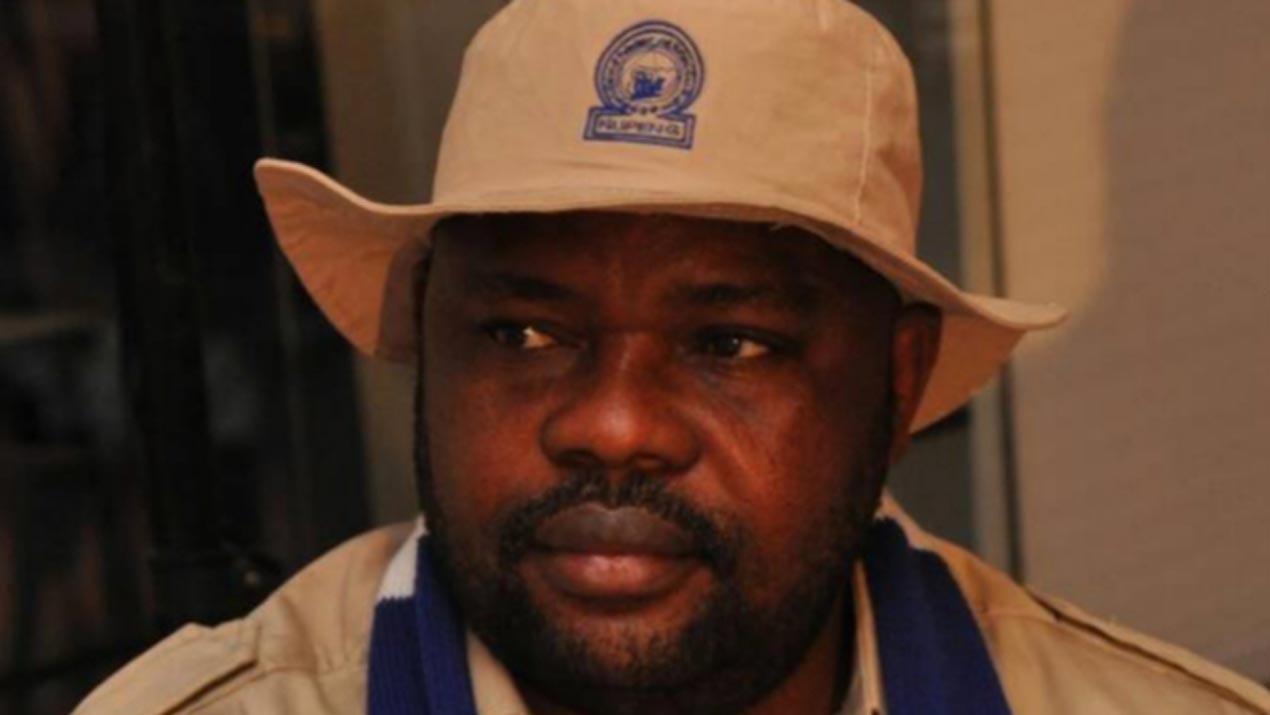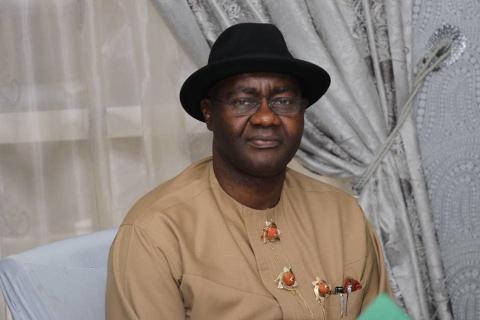The proposed sale of Joint Venture (JV) equities in the upstream sector of the oil and gas industry as well as the proposed amendments to the Petroleum Industry Act (PIA), 2021 are being strongly opposed by two trade unions operating in the sector – the Petroleum and Natural Gas Senior Staff Association of Nigeria (PENGASSAN) and the Nigeria Union of Petroleum and Natural Gas Workers (NUPENG). In this report, GBENGA SALAU, x-rays the issues at stake and concludes that their intervention should be seen as a patriotic move rather than a rabble-rousing rhetoric.
Perhaps, the planned sale of the nation’s stakes in the best performing Joint Ventures (JVs) in the upstream sector of the oil and gas industry would have gone unnoticed until the Petroleum and Natural Gas Senior Staff Association of Nigeria (PENGASSAN) and the Nigeria Union of Petroleum and Natural Gas Workers (NUPENG) decided to address a joint press conference on the matter in Abuja, on September 23, 2025.
Speaking in Abuja during the press conference, both PENGASSAN and NUPENG, represented by the President of PENGASSAN, Festus Osifo, and the President of NUPENG, William E. Akporeha, said the proposed sale of JV equities will aggravate Nigeria’s energy security concerns, and weaken the strategic control standpoint of Nigeria in the oil and gas industry.
Their words: “Once these Assets are disposed of, there will be a huge strain on the streams of revenue available to the future generation of Nigerians, because the sale will mean that future streams of revenue accruable from these JV Assets will no longer be available for the next generation of Nigerians.”
They also added that handing decisive control to a few private interests will weaken “our sovereign ability to plan, stabilise supply, and respond to economic shocks, bearing in mind that the upstream remains the backbone of Nigeria’s economy.”
Speaking further, PENGASSAN and NUPENG said that “these JVs are among the country’s most reliable earners which have been sustaining Nigeria since the discovery of crude oil and gas in Nigeria.” They therefore argued strongly that shrinking the public stake in these JVs today will ultimately shrink tomorrow’s inflows to the federation and invariably negatively affect the future generation of Nigerians. According to them, the taxes and dividends accruable to the federation will shrink drastically.
The two trade unions also stated that the proposed sales pose a great threat to job security, skill development in the industry, and local content development in the country. They maintained that “the planned sale of the JV equities will endanger everything about the future of oil and gas in Nigeria, including employment, skills transfer, and host community obligations built under public-interest stewardship.”
PENGASSAN and NUPENG did not stop in their opposition to the JV sales. During the press conference, they also dwelled on the issue of the proposed amendments to the Petroleum Industry Act (PIA).
The unions averred that they were aware of the plans by the Federal Government, through the Federal Ministry of Finance to amend or remove certain provisions of the PIA 2021. According to them, the proposed amendments were being packaged to be presented to the National Assembly as an Executive Bill.
“After a careful review of the proposed amendments, it became obvious to us that they are designed to kill the oil and gas industry as it will weaken the various institutions and agencies, established by the PIA, and as well derail the objectives of these institutions, as enshrined in the Act.”
The leadership of the two trade unions argued that the main essence of NNPC Limited will be lost, and this will have grave negative impacts on the entire oil and gas industry in Nigeria.
For instance, in the Seventh Schedule, Paragraph 14 of Part IV (Supplemental) of the proposed amendment, the Federal Government wants Contractor Parties of all subsisting and future Production Sharing Contracts and Risk Service Contracts to directly pay in kind or the cash value of the royalty oil and tax oil to the Federation Account.

The Unions stated that, “this proposition will not work because payment of royalty and tax oil in kind directly to the Federation Account is impracticable without a commercial entity to lift and commercialise the oil on behalf of the Federation.”
They contested that the NNPC Limited “was designed by the PIA to be a profit-driven national oil company, like Saudi Aramco and Petrobras raising capital globally, competing fairly, and paying royalties, taxes, and dividends to the Government of the Nigerian Federation. To this extent, these proposed amendments are ill-conceived and self-serving, as they will reverse NNPC Ltd’s journey to globalisation.”
According to them, the proposed amendment will take the Nigerian oil and gas industry back to the years when NNPC could not be a global player due to opaqueness, excessive government and political interference, and instability, which made it difficult to attract and retain long-term investments.
Beyond the PIA amendment moves, while the reasons behind the proposed sale of the nation’s equities in the JVs have not been made public, what is clear is that there are plans by the government to sell part of the nation’s JV equity in the upstream oil and gas sector.
For instance, the first stake planned to be sold is federation’s stake at Seplat Energy Producing Nigeria Unlimited Joint Venture, also known as SEPNU JV. Sources hinted that there are plans to sell 35 per cent of the Nigerian nation’s equity in the Joint Venture.
Currently, the federation’s equity in the SEPNU JV is 60 per cent. So, selling 35 per cent out of 60 per cent would leave the Nigerian federation with only 25 per cent equity in the JV.
In the same vein, the federation has 55 per cent equity in Renaissance Africa Energy Company (RAEC) Limited, also known as RAEC JV. Sources told The Guardian that there are plans to sell 25 per cent of the Nigerian federation’s equity in RAEC JV. With the current 55 per cent equity, it means the Nigerian nation would be left with only 30 per cent equity in the JV.
The Oando Joint Venture, otherwise known as Oando JV, is also part of the sale plan. It should be noted that the federation’s equity in Oando JV is 60 per cent. But there are plans to sell 30 per cent of Nigeria’s equity in the JV. Selling off 30 per cent out of the 60 per cent stake would leave the Nigerian nation with only 30 per cent equity in the JV.
An oil and gas expert, Kehinde Ayokunle, who works with one of the international oil companies told The Guardian that the sales of these equities will be a huge loss to the country, adding that it would amount to a loss of control of strategic national assets.
His words: “Handing control of these JVs to a few private profiteering individuals takes away the sovereign ability of the Nigerian state to control its national economic affairs. It can result in economic shocks and collapse of the Nigerian nation state. This is bearing in mind that the upstream oil and gas remains the backbone of Nigeria’s economy.”
He added that it would also weaken the nation’s energy security as the sale of these strategic JV assets to a few well-connected private individuals is at the great expense of Nigeria’s energy security and at the expense of the future generation.
He also added that it would lead to loss of national revenue and foreign exchange, explaining that “60 per cent of the revenue coming from these JVs is among the country’s most reliable source of revenue and foreign exchange. Therefore, selling the nation’s stake in these JVs means reducing the federation’s revenue and forex inflow.”
It could be recalled that recently, a group, Advocacy Group of Concerned Nigerians, had written an open letter, published in one of the dailies, to President Bola Ahmed Tinubu, expressing their opposition to the planned sales by those it said were “close to the corridors of power.”
The letter was signed by Ishaya Mallaimmu, representing the North-East; YauYau Alhaji, for the North-West; Patrick Illiya representing the North-Central; Ade Pablo representing the South-West; Ude Muoma for the South-East and Johnny Johnny representing the South-South.
The group said they wanted “to inform Mr. President and Commander-in-Chief of the Armed Forces of Nigeria, President Bola Ahmed Tinubu that some people of influence who are also close the corridors of power in Nigeria are currently bidding and pushing to buy the Nigerian Federation’s Joint Venture (JV) equities in the upstream Oil and Gas industry.”
The group urged the President to “call these powerful interests to order, by sending out strong warning that the federation’s JV assets are not for sale,” adding: “Remember that it is not in your time as President of Nigeria that the Nigerian federation’s oil and gas JV asset will be sold to private profiteering individuals. Posterity will hold you to account forever, if that happens in your time.”
The group also emphasised that the individuals behind these proposed sales were only pushing to annex the nation’s assets and were not doing so in the President’s best interest.
“They want to make you a perpetual enemy of the Nigerian people. They are not doing this to support your 2027 ambition for a second term in office. Rather, they are trying to grab whatever they can grab before 2027. This is our appeal to you to resist the temptation of towing their part trying to destroy Nigeria,” the group noted.
It is noteworthy that no group in Nigeria understands the negative implications of the proposed sale of JV equities and the proposed amendments to the PIA more than PENGASSAN and NUPENG. As such, oil and gas experts believe their intervention should be seen as a patriotic move rather than a rabble-rousing rhetoric.






